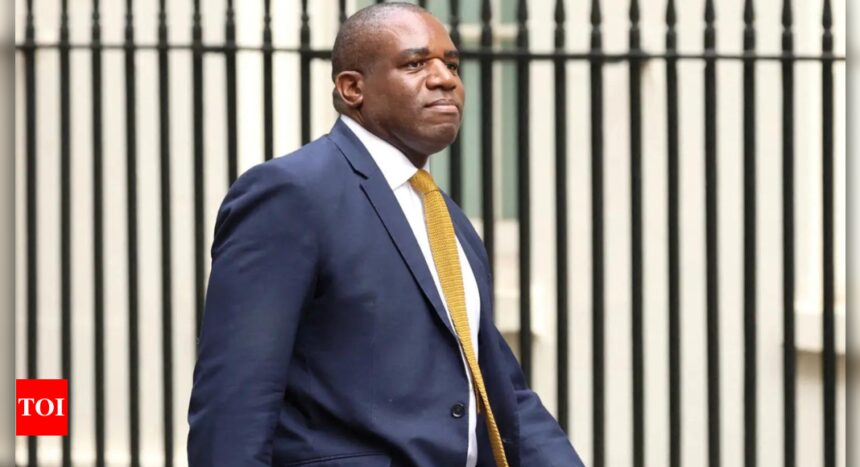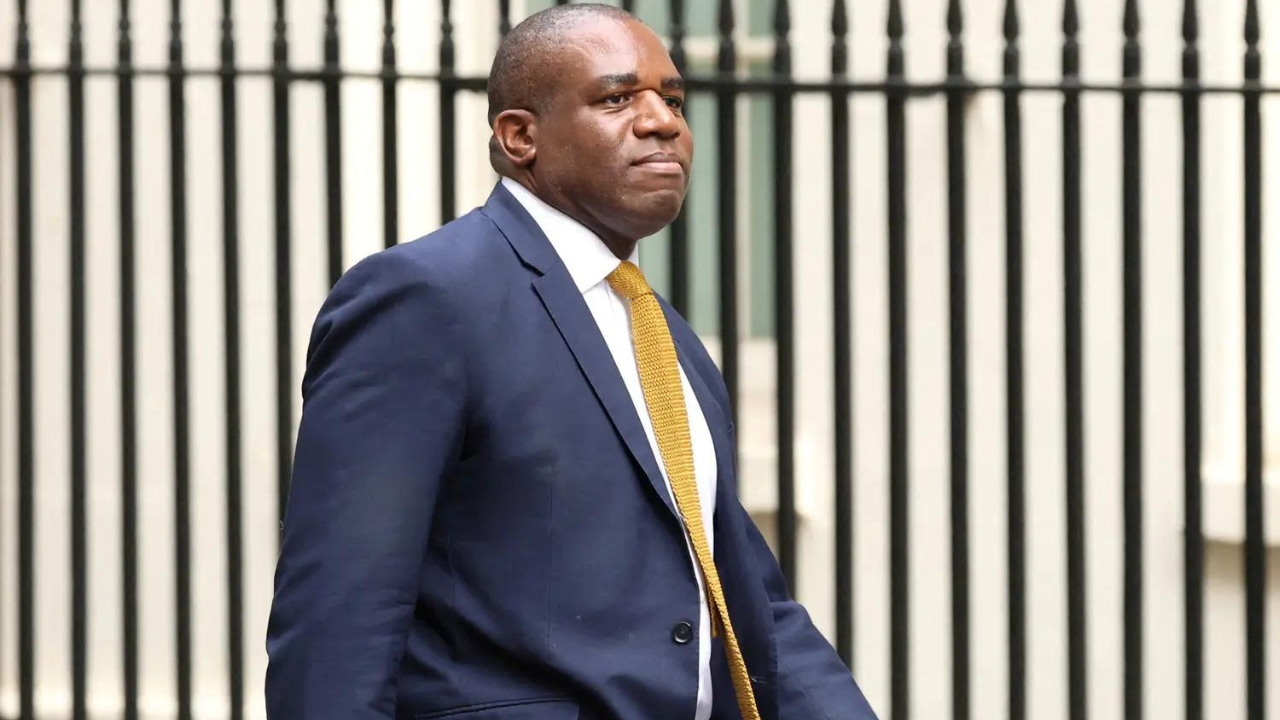Britain on Monday suspended 30 out of 350 arms export licenses to Israel, arguing there is a “clear risk” that arms could be used in a serious breach of international humanitarian law.
Foreign Secretary David Lammy told parliament the partial ban covered items “which could be used in the current conflict in Gaza” against Hamas but did not include parts for the F-35 fighter jets, reported news agency AFP.
“It is with regret that I inform the House (of Commons, lower house of parliament) today the assessment I have received leaves me unable to conclude anything other than that for certain UK arms exports to Israel, there does exist a clear risk that they might be used to commit or facilitate a serious violation of international humanitarian law,” Lammy was quoted as saying by news agency Reuters.
Lammy, however, said the UK continues to “support Israel’s right to self-defence in accordance with international law”.
British firms sell a relatively small amount of weapons and components to Israel.
Earlier this year the government said military exports to Israel amounted to 42 million pounds ($53 million) in 2022.
This comes at a time when the Biden administration is set to present a final “take it or leave it” cease-fire and hostage-release proposal to Israel and Hamas in the coming weeks, following the discovery of six dead hostages by Israeli forces.
This move, which has been months in the making, involves close collaboration with Egypt and Qatar and may mark the last chance for an American-brokered resolution, according to the Washington Post.
A senior administration official highlighted the urgency of the situation, saying, “You can’t keep negotiating this. This process has to be called at some point.” The official added that the United States, Egypt, and Qatar had been refining the final proposal before the hostages were found dead in a tunnel beneath the southern Gaza city of Rafah.
The Biden administration, having spent months attempting to broker an agreement that would see the release of the remaining hostages in exchange for Palestinian prisoners and a temporary cease-fire, now faces a critical juncture. The administration official noted that Hamas’s decision to execute the hostages during ongoing negotiations “calls into question” the group’s seriousness in pursuing a deal.
Israel announced on Sunday that its troops had discovered the bodies of six hostages in an underground tunnel in the Rafah area of southern Gaza. The remains were recovered on Saturday and have since been formally identified in Israel.
Military spokesperson Daniel Hagari confirmed that all six hostages had been abducted alive and were “brutally murdered by Hamas terrorists shortly before we reached them.” IDF confirmed that Hamas continues to hold 101 hostages in Gaza including women, children, and the elderly.
Foreign Secretary David Lammy told parliament the partial ban covered items “which could be used in the current conflict in Gaza” against Hamas but did not include parts for the F-35 fighter jets, reported news agency AFP.
“It is with regret that I inform the House (of Commons, lower house of parliament) today the assessment I have received leaves me unable to conclude anything other than that for certain UK arms exports to Israel, there does exist a clear risk that they might be used to commit or facilitate a serious violation of international humanitarian law,” Lammy was quoted as saying by news agency Reuters.
Lammy, however, said the UK continues to “support Israel’s right to self-defence in accordance with international law”.
British firms sell a relatively small amount of weapons and components to Israel.
Earlier this year the government said military exports to Israel amounted to 42 million pounds ($53 million) in 2022.
This comes at a time when the Biden administration is set to present a final “take it or leave it” cease-fire and hostage-release proposal to Israel and Hamas in the coming weeks, following the discovery of six dead hostages by Israeli forces.
This move, which has been months in the making, involves close collaboration with Egypt and Qatar and may mark the last chance for an American-brokered resolution, according to the Washington Post.
A senior administration official highlighted the urgency of the situation, saying, “You can’t keep negotiating this. This process has to be called at some point.” The official added that the United States, Egypt, and Qatar had been refining the final proposal before the hostages were found dead in a tunnel beneath the southern Gaza city of Rafah.
The Biden administration, having spent months attempting to broker an agreement that would see the release of the remaining hostages in exchange for Palestinian prisoners and a temporary cease-fire, now faces a critical juncture. The administration official noted that Hamas’s decision to execute the hostages during ongoing negotiations “calls into question” the group’s seriousness in pursuing a deal.
Israel announced on Sunday that its troops had discovered the bodies of six hostages in an underground tunnel in the Rafah area of southern Gaza. The remains were recovered on Saturday and have since been formally identified in Israel.
Military spokesperson Daniel Hagari confirmed that all six hostages had been abducted alive and were “brutally murdered by Hamas terrorists shortly before we reached them.” IDF confirmed that Hamas continues to hold 101 hostages in Gaza including women, children, and the elderly.
Source : Times of India








